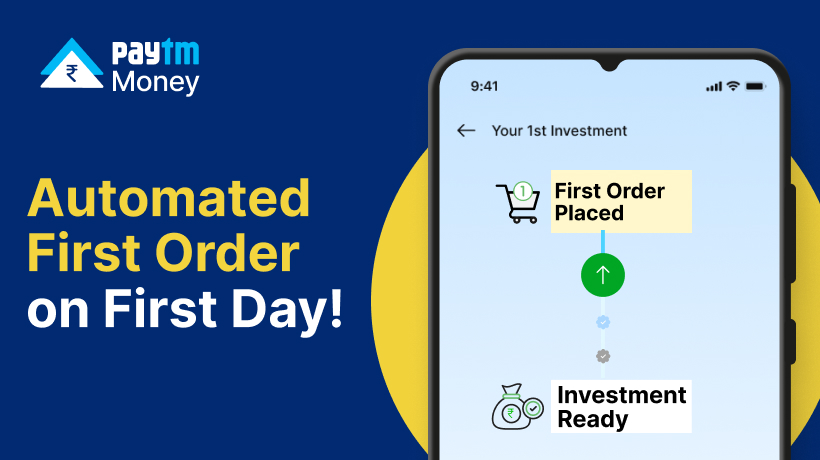Demystifying Buybacks5 min read
Buybacks, also known as share repurchases, have become increasingly popular among companies in recent years. A buyback is a corporate action in which a company repurchases its own shares from its shareholders, either through a tender offer or an open market purchase.
While buybacks can be a way for companies to return value to their shareholders, they are not always a sign of a healthy company. In this blog, we will discuss how to evaluate a company’s buyback plan and make informed choices as an investor.
Let’s understand Buybacks –
Before learning how to evaluate a buyback plan, let’s first explore what buybacks are and why companies do them. To know more about the ongoing buybacks on Paytm Money, please click here. https://www.paytmmoney.com/stocks/corporate-actions/buyback-home

But why do companies offer buybacks?
Companies engage in stock buybacks for a number of reasons, including:
1. Enhancing shareholder value
By reducing the number of outstanding shares, the earnings per share (EPS) can potentially increase, which may lead to a higher stock price. This can benefit existing shareholders who hold onto their shares.
2. Utilizing excess cash
If a company has accumulated excess cash on its balance sheet, it may choose to deploy some of that cash for a buyback. This allows the company to return capital to shareholders rather than letting it sit idle.
3. Signaling undervaluation
A buyback can serve as a signal from the company that it believes its shares are undervalued in the market. By repurchasing shares, the company demonstrates confidence in its future prospects and sends a message to investors that it believes the stock price does not reflect the true value of the company.
4. Offsetting dilution from stock-based compensation
Many companies offer stock-based compensation to their employees, such as stock options or restricted stock units. These equity-based incentives can dilute the ownership of existing shareholders. By conducting a buyback, the company can repurchase shares to offset the dilution caused by issuing new shares for employee compensation.
5. Defense against hostile takeovers
When faced with a hostile takeover attempt, a company can utilize a buyback strategy to defend itself. By repurchasing shares, the company strengthens its ownership concentration, thereby raising the bar and increasing the difficulty and cost for potential acquirers to gain control. This serves as an effective defense mechanism against unwanted takeovers.
These are some of the major reasons, there can be more purposes behind a company’s buyback. Investors should carefully evaluate the company’s intentions, financial health, and long-term strategy before making investment decisions based on buybacks.
A buyback plan: how to evaluate it
So, how can investors assess a buyback plan to see if it is a good use of capital? Here are some important factors to consider:
1. Go through the buyback details diligently

Carefully review the company’s announcements and filings to gather information about the buyback, such as: size, timeline, and method (tender offer or open market purchase) of the buyback.
For example, Tata Consultancy Services (TCS) came out with a buyback of shares worth Rs 18,000 crore in March 2022, aiming to repurchase shares at a price of Rs 4,500 per share through the tender offer route.
2. Assess the purpose behind the buyback offer
Evaluate the stated purpose of the buyback and its alignment with shareholder value creation. For example, if a company is using surplus cash in buybacks, it may also signal a lack of avenues for growth in reusing the capital in the company.
3. Review the buyback offer price
This is one of the most crucial factors in evaluating buybacks. Check the buyback offer price and compare it with the trending market price. Is the buyback price at a significant premium to the market price? If not, then the buyback may not be of great value to investors.
4. Analyze financial health and prospective growth
Assess the company’s financial health, including profitability, cash reserves, and debt levels, and see if the company has strong growth prospects. Consider the company’s overall growth prospects, dividend policy, and the potential for capital appreciation. Assess whether participating in the buyback aligns with your investment goals and risk tolerance compared to other investment opportunities.
5. Buyback history
Investors should also look at a company’s buyback history to understand how it has used buybacks in the past. Have previous buybacks led to long-term value creation for shareholders, or have they been used as a short-term boost to the stock price?
Buyback: How do I participate?
Okay, so now that you’ve made a decision on applying for a Buyback, you need to check whether you are eligible for the Buyback and apply for the same. You can refer to the blog here to understand this in depth: https://www.paytmmoney.com/blog/stock-buyback-on-paytm-money/
You can explore the open Buybacks here for which you are eligible on Paytm Money and apply for the same:

Finally, investing in a company that is conducting a buyback should be based on a thorough examination of the company’s financials, strategy, and long-term prospects. While a buyback may signal confidence in a company’s future prospects, investors should carefully consider the purpose of the buyback, the company’s buyback history, Offer price, etc before making a decision.
In conclusion, buybacks can be a way for companies to return value to their shareholders, but they are not always a sign of a healthy company. Investors should evaluate a company’s buyback plan based on a thorough analysis of the company’s financials, strategy, and long-term prospects. Happy Investing!
Disclaimer: Investments in the securities market are subject to market risks, read all the related documents carefully before investing. This content is purely for information purpose only and in no way to be considered as an advice or recommendation. Paytm Money Ltd SEBI Reg No. Broking – INZ000240532. NSE (90165), BSE(6707) Regd Office: 136, 1st Floor, Devika Tower, Nehru Place, Delhi – 110019. For complete Terms & Conditions and Disclaimers visit: https://www.paytmmoney.com.
Written By: Gunjan Gupta




